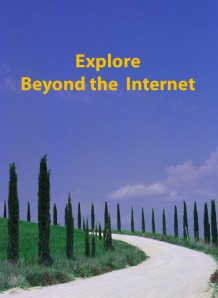
This is Week 34 in my Beyond the Internet series in which I explore the sources of information beyond our computer screens and the topic is Family History Society (FHS) Libraries.
It’s easy to assume that most genealogists/family historians are members of at least one family history society, but is that still true in this internet-driven era of research?
When I started out in my family research nearly 26 years ago family history research was the same as now, in the sense of trying to track down one’s ancestry and our families’ lives. However it was also extremely different in ways that even those of us who lived through find hard to re-imagine. Shauna Hicks posted a great story about this recently and it’s well worth a look just to see pre-internet research through the looking glass.
But anyway all that’s a diversion. Why would you bother going to a family history library today? There are several reasons.
1. Accessibility
You may not have a reference library close to you given their concentration in larger places, so the local FHS library may be the most convenient place for you to visit
2. Local Reference Books
Societies which have been operating for some time will steadily accumulate a wide variety of books on their specific location, as well as a representative sample of books on other places
3. Indexes
In the “olden” days, all manner of records were indexed by enthusiastic volunteers and mostly ended up on microfiche. While some of these have wound up on various internet pay-to-view sites, not all of them have: there may well be a nugget just waiting for you to find it. One example – the Genealogical Society of Queensland has indexed a wide array of Roman Catholic church records for Queensland. If you come from the Brisbane area, do take note when a child is baptised in Wooloowin where the home for unmarried mothers was situated, or the burial records of St Joan of Arc, Herston which was the parish providing pastoral care to Royal Brisbane Hospital. Another example – The Family History Society of North Queensland in Townsville have indexed a wide variety of resources, books etc which is invaluable if you have ancestors from the region. Some societies have published their indexes online so that’s also worth pursuing but for now we’re talking about off-line resources.
4. Pioneer Registers
In the lead up to Australia’s Bicentenary in 1988 and Queensland’s 150th celebrations in 2009, many societies published pioneer information submitted by genealogists. I may be wrong but I’m not aware of any of these available online. I’d imagine similar pioneer databases are available for overseas researchers. I wrote about some of these here.
5. Microfilmed records
They often have unusual records on microfilm which you won’t find elsewhere. I’ll be talking about some of these in the next few weeks so I’m not going to tip my hand now.
6. Classes, Interest Groups, and Collegiality
Many active societies will have classes targeted at specific genealogy interests. They are a great way to learn more from an experienced presenter.
Similarly societies will usually have Specific Interest Groups eg Scottish, Irish, IT etc. Once again you will learn a lot but you’ll also have help to brainstorm your problems. But do also pursue your own research – with the best intentions even the experts can give you incorrect information. For example, years ago I was resoundingly told there were no Catholic Germans who came to Queensland and none from Bavaria. The person was an expert, but had an unstated bias towards Lutheran research and was completely incorrect on the topic of Catholic German immigrants.
Which societies should you join? You can look at this a number of ways.
If you want to do the face-to-face research and get assistance, then the society near you is likeliest to be the most helpful. It may also be helpful to be a member of a society in the area where your ancestors lived. If you have options you may wish to check out their online presence and see just what they offer to members before choosing where to spend your money and time.
Also consider what reciprocal memberships they offer. You want to ensure you get maximum “bang for your buck”.
What are your thoughts on family history societies and how have they been valuable to your research?
I love my local FHS. The collection of resources is very good, but the help from other members is the best part of my membership. The Saturday Crew is very sociable 😉
LikeLike
Always good to find a supportive FHS, Fi. Sounds like you’ve hit on one.
LikeLike